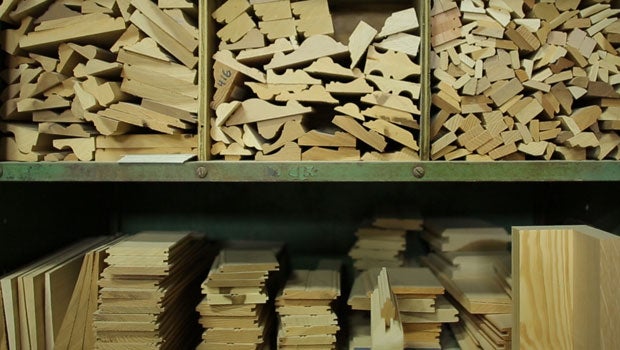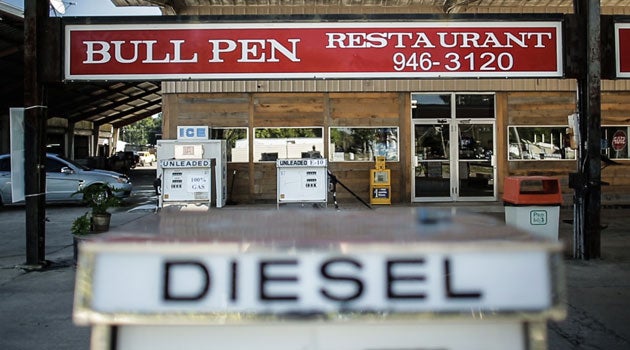Infrastructure Fueling Rural Economic Development
This fourth America’s Rural Opportunity panel will consider rural infrastructure and how well planned and coordinated infrastructure investments can advance rural economic development. What qualifies as “infrastructure” in rural America? Well, it encompasses the usual – roads, water lines, bridges and sewers. But in rural places, it also includes broadband and other constructed assets like airports, marinas, and even specialized facilities like kitchen incubators.
Rural community and economic prosperity depends on having the right infrastructure – and innovative solutions to providing that infrastructure are needed in rural places. But many strategies to repair and expand infrastructure that are gaining traction across the United States rely on public-private partnerships, and, with fewer players in the mix, it can be challenging to forge those partnerships in rural places. Thus, rural leaders greatly value tailored federal programs like EPA’s Water Infrastructure Finance and Innovation Act, USDA’s Community Connect Grants, and USDA’s Community Facilities Grants. This panel will highlight how leading rural organizations are pulling together a wide array of tools to utilize those programs and build and maintain infrastructure that is critical to advancing their regional economies and the wellbeing of their residents.
The Innovators:
A New Level of Community Connectivity in Northern California
Karuk Tribe, Orleans, CA
Bari Talley, Karuk Tribe
Eric Cutright, Karuk Tribe
The rural community of Orleans, California, is located in the mid-Klamath River Basin of northwestern California. Highway 96 is the only paved road connecting Orleans to major towns, via either a two-hour drive south or a three-hour drive north, yet even this is subject to frequent closures due to slides, flooding and wildfire. And while both California and Oregon are known for their high-tech industry and booming internet businesses, the 350-strong population of Orleans lacked broadband internet and even reliable phone service in 2010. That’s why the Karuk Tribe decided that providing this community with high-speed internet was critical for the region’s vitality – and future. With support from the Community Connect Program, the Tribe built a fiber optic line and transmission tower to distribute high-speed wireless signal to most of the area’s homes. Community residents have embraced these new broadband services, and many homes, organizations, institutions and businesses are now digitally connected to the global community. One early success: The Tribe’s Department of Natural Resources has been able to establish a digital library, archive, and museum by, for, and about the indigenous Peoples of the Klamath River Basin. In addition, entrepreneurial Orleans residents are now able to work from home rather than commute several hours each day.
From Wastewater to Burgeoning Business on the Northern Border
Town of Clayton, NY
Justin Taylor, Former Town Supervisor
The Town of Clayton on the St Lawrence River in northern New York has used infrastructure grants from the Northern Border Regional Commission to better position their rural community for tourism, which is an economic engine critical to the region’s future. They leveraged multiple funding sources to obtain ownership of and remediate an abandoned, contaminated snow plow factory site on the waterfront. The community then used a wastewater improvement grant to attract a major new hotel – and 80 jobs – to the site. Their current focus is updates to their historic downtown (parks, streets, water, waste water and utility lines) to make it more business and visitor friendly. These projects highlight the complex but necessary “knitting together” of funding and savvy from many sources, and the challenge, creativity and capacity that many rural places are deploying today to get ahead.
Reclaim a Building, Rebuild a Culture in Wisconsin Rapids
Wisconsin Rapids, WI
Kelly Ryan, President & CEO, Incourage
In 2012, the Incourage Foundation purchased the former Daily Tribune headquarters on the banks of the Wisconsin River in downtown Wisconsin Rapids. From the beginning, the Tribune (tribunebuilding.org) has been about much more than redeveloping a building. It represents hope and change for a community that experienced 40% job loss after the sale and significant downsizing of the local Fortune 500 paper company in the year 2000. Through a user-centered process that engaged over 2,000 residents, the Tribune’s design reflects resident priorities and capitalizes on community assets. When its renovation is complete, the building will house a microbrewery, café, culinary kitchen, creative workshop and recreational rentals to help visitors and residents utilize the Wisconsin River and nearby trails. At its core, the Tribune is a community enterprise focused on cultivating entrepreneurs and growing a strong and inclusive local economy. It will provide tools necessary for area entrepreneurs, such as technical training and financial support, helping them grow successful businesses from the start.


